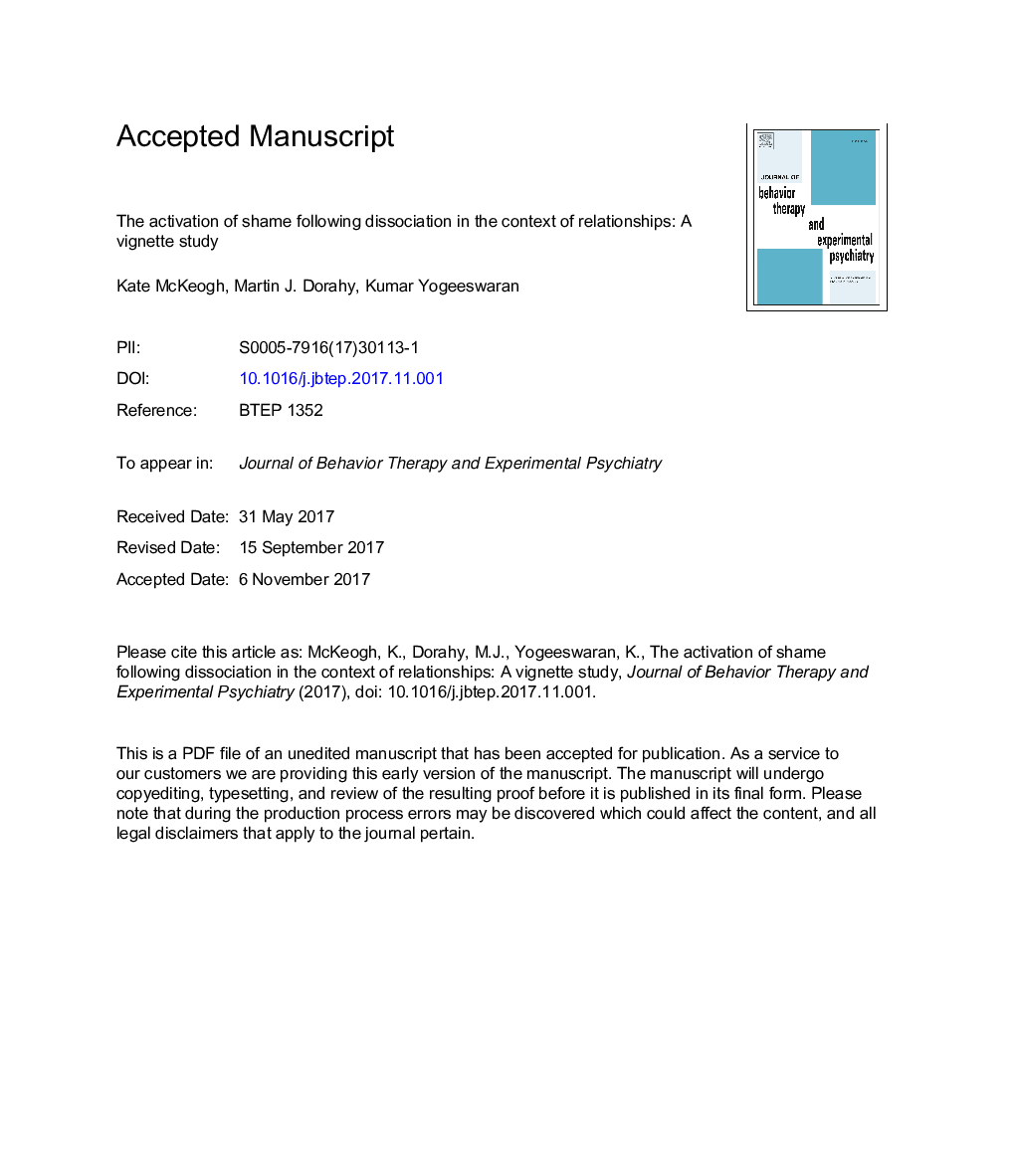| Article ID | Journal | Published Year | Pages | File Type |
|---|---|---|---|---|
| 7267509 | Journal of Behavior Therapy and Experimental Psychiatry | 2018 | 37 Pages |
Abstract
Results did not suggest that shame is a generic reaction to experiences of dissociation or to specific relationship contexts. Rather, shame was uniquely evoked when dissociation occurred with a close friend. These findings suggest there is a contextualized bi-directional relationship between dissociation and shame, whereby shame appears to activate dissociation, and dissociation in the context of a close other seems to evoke shame. Knowledge about the activation of shame in response to dissociation may assist therapists in educating their clients about this connection.
Related Topics
Health Sciences
Medicine and Dentistry
Psychiatry and Mental Health
Authors
Kate McKeogh, Martin J. Dorahy, Kumar Yogeeswaran,
